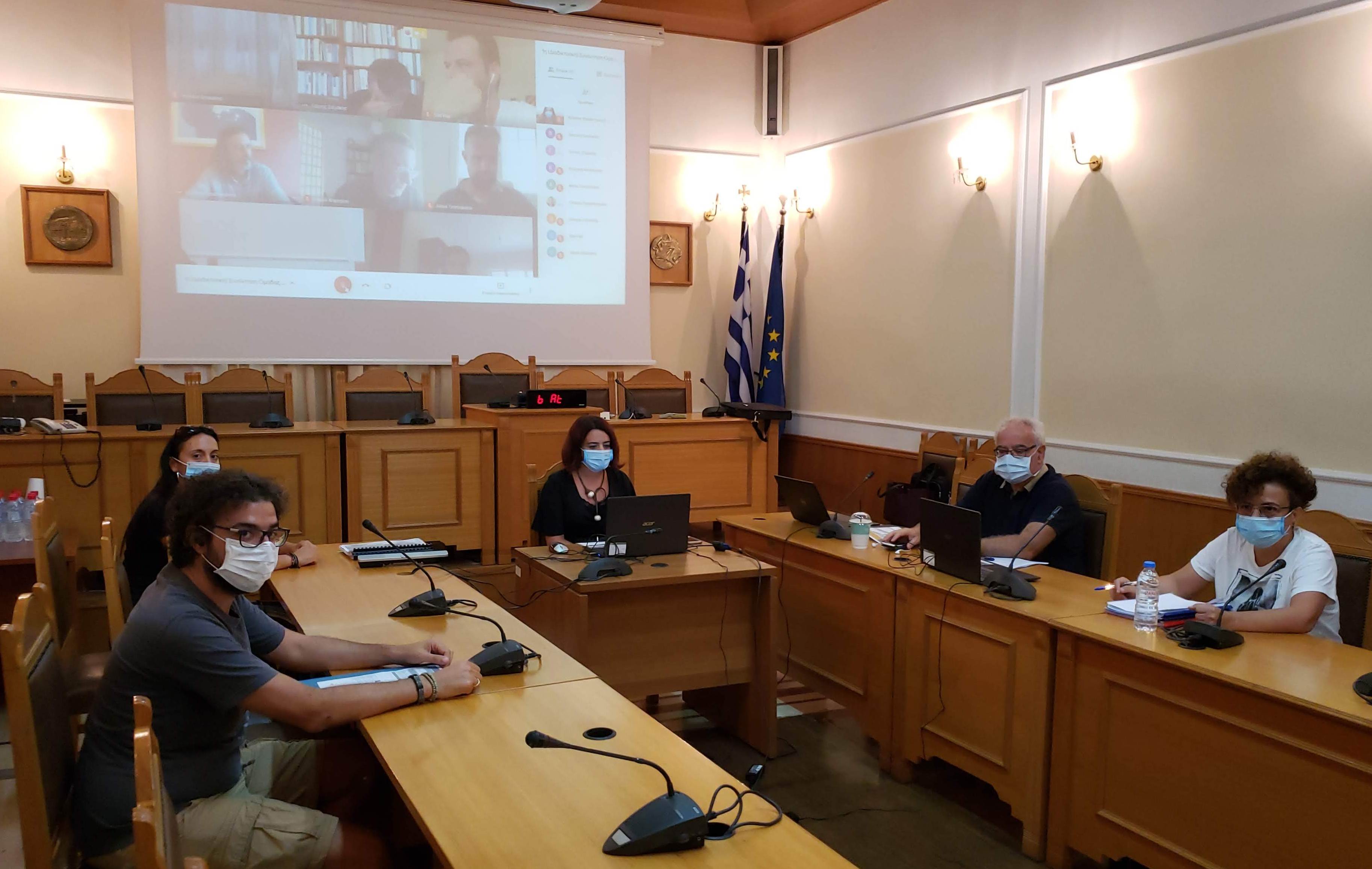The Regional Observatory for Social Inclusion of the Region of Crete is in full operation
The Regional Observatory for Social Inclusion of the Region of Crete (Observatory), staffed by specialized scientists, is now in full operation. The Observatory cooperates with the University of Crete and in particular with the Laboratory of Social Analysis and Applied Social Research of the Department of Sociology, in order to conduct specialized social research. The first meeting of the Observatory with the scientific team for the development planning of its activities, took place online, with the presence of the Deputy Regional Governor of Public Health and Social Policy, Lambros Vamvakas.
The operation of the Observatory in the regional administration will support the Regional Strategy for Social Inclusion and Combating Poverty in Crete (PESKE Crete), within the framework of the National Mechanism for Coordination, Monitoring and Evaluation of social inclusion and social cohesion measures (Law 4444/2016). The Observatory will contribute to the effective implementation of social protection and social inclusion measures in Crete. The work of the Observatory is considered important for the local community, as it focuses on fighting against poverty and social exclusion.
Through the Observatory, the Region of Crete is called to coordinate, monitor and evaluate social intervention measures implemented at regional and local level in Crete. Its aim is to highlight the challenges and needs of the local community, to capture the spatial dimensions of poverty, deprivation and social exclusion, to record and monitor dimensions of the social and economic integration of vulnerable groups, and finally, to contribute to formulation of measures to improve the economic and social life of the inhabitants.
The dynamics developed through the Observatory are in line with contemporary forms of governance in which scientific research and knowledge are used to formulate effective social policies, based on social justice, equal access to development and social goods, the elimination of social inequalities. and all forms of discrimination. The mechanism for the diagnosis of social needs developed through the Observatory, bases on the findings of social research, will allow the design of fair and socially effective measures of social inclusion in the Region of Crete. In this direction, the perspective of claiming and utilizing financial resources (national and European) in all areas of social policy is strengthened, for the benefit of all the inhabitants of the island.
A. Scientific Responsibles / University of Crete:
Giannis Zaimakis: Professor of Sociology of Culture and Local Communities, Department of Sociology, University of Crete, Head of Scientific Project Team and Director of the Laboratory of Social Analysis and Applied Social Research, Scientific Responsible of the Research Team.
Christos Papatheodorou: Professor of Social Policy, Department of Social Policy, Panteion University, Scientific Responsible of the Research on the living conditions of households in Crete.
Vassilis Arapoglou: Professor of Sociology of Social Inequalities and Social Exclusion, Department of Sociology, University of Crete, Scientific Responsible for the identification, analysis and mapping of local deprivation pockets.
George Tsiolis: Associate Professor of Sociological Research, Department of Sociology, University of Crete, Scientific Research Responsible for the evaluation of social inclusion programs and special social groups.
B. Scientific Observatory Team:
Stefanos Papanastasiou, Assistant Professor of Social Policy & Angelos Loukakis, Dr. of Sociology, with experience in the analysis of social inequalities, in quantitative methods of analysis of social data and indicators.
The Observatory also provides support for the operation of an IT position and the creation of a Web Portal.
The project of support and operation of the Regional Social Inclusion Observatory was designed and implemented over a period of three years. It is financed by the Operational Program "Crete 2014-2020" (NSRF 2014-2020), with the co-financing of the European Social Fund.


